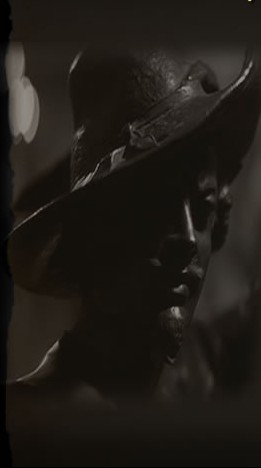By Narcisse-Achille de Salvandy (1795-1856), printed by A. Egron by appointment to His Highness the Duke of Angouleme, rue des Noyés n° 57, December 1815.
 In just a few days, the Military House will cease to exist and the revolution’s task will have been accomplished. All that will remain of our dear old France will be scattered traditions, painful memories and the view of a throne untimely cut from its old supports.
In just a few days, the Military House will cease to exist and the revolution’s task will have been accomplished. All that will remain of our dear old France will be scattered traditions, painful memories and the view of a throne untimely cut from its old supports.
And yet, this was not the future that our hearts foresaw during those happy days of the Restoration, when the king our father returned, after more than twenty years of absence, to rebuild the monarchy upon its old foundations, supported by a constitutional charter, to which our grateful Patria owes so much. Oh, we were so proud then to be called to revive an institution that had so ennobled the triumphant pomp of the century of Louis XIV. We thought, since our recognition accompanied the restoration of the throne, that we would be permitted to share in all the glory that awaited this august dynasty of Kings.
Nevertheless, at the same time that royal authority has become powerful enough to withstand the violence of factions and centuries, even as a long period of security guarantees our institutions a certain permanence and the nation searches to surround the throne with all the trappings of stability, when loyal subjects hope to finally enjoy the benefits of the paternal governance of their princes; it is then that the Red Companies, after having victoriously traversed periods of national glory and adversity, finally succumb to the connivances of a minister. It is thanks to this minister, an inheritor of so many great men of talent and of Richelieu himself, founder of the red companies, that these companies, after having decorated the fugitive throne in all the brilliance of royal majesty, are condemned to lose in exile all the rights conferred by their devotion.
When the descendant of Henry IV took our old bands into his entourage in 1814, he was appropriating traditions that were very foreign to him. There is no doubt, then, that his minister was reticent to parade these brilliant companies before his army, these companies who brought with them more ancient trophies. It was easy to see that, proud of its triumphs, the army would refuse to recognize a brotherhood of arms that had not been sealed on the plains of Marengo or Austerlitz.
But could one have predicted such painful rivalry today? Even as these troops less ancient than our own and who have not yet tasted victory reorganize, [they] could not help but to see in us the inheritors of a veritable national glory, a glory from the great epoch of Louis XIV, and they should have saluted us as their precursors in the field of loyalty and honor.
As new standard-bearers arise to call brave men from all parts to rally around the white standard, the chiefs of these legions, whose bravery of a very French variety destines them to a heroism like that of the Roman legions, should not have hesitated to cite as an example the only corps that were still afoot in France. He could have told his men, “Look at these valiant companies! Their ranks often composed of your old comrades in blood and sweat, they have remained unshaken in their loyalty to the greatest of kings.
Without a doubt, and through your loyalty, you could have earned the recognition that [these companies] enjoy from the Patria, if you had had –like them—the chance to incessantly contemplate all the princely virtues that Providence has given us. From this day forth, may their example, as well as the chastisements of circumstance, teach you to never again serve under any flag other than that of your fathers; let them alone guide you, for you will always see them on the path of honour.”
Yes, that is the discourse that should have been maintained in the army. And when the moment of combat arrived, when the fortune of France conferred ancient laurels to new banners, we would have seen Victory, through familiarity with other armies, recognize these brilliant corps that were once crowned by her hands in the walls of Valenciennes and on the battlefield of Cassel.
Vain regrets! The day that returned to our acclaimed king the sceptre of his fathers also saw all our destinies, all our hopes and our entire future fade into nothingness. This day, which filled so many hopes and consoled so many misfortunes, was not to be poisoned by bitter regrets except for the most zealous defenders of royal authority. This first day of happiness for France was to be the last day where we were allowed to assemble, surrounding the throne with the recompense of our loyalty. This day which enlightened the monarchy’s unhoped for resurrection saw the condemnation of the last monument to France’s ancient splendour.
Soldiers of Waterloo, you who were the instruments of the disastrous usurpation of the 20th of March before becoming its victims, we shouldn’t have shared your fate—now the same sentence condemns us.
May the future fulfil the hopes of the present! Our virtuous monarch, whose soul was strong enough not to succumb to so much adversity, may he never remember that the revolution, through the dissolution of the royal guards, prepared the way for the bloody scenes which she would offer up to France as a horrible spectacle! May [the king] be surrounded by so much love and loyalty that he never come to miss one day his Military House, whose sacrifice has been torn from him!
As for us, though we are resigned to our fate, it is the first time that our obedience causes so much pain. Everything united us: the same feelings of affection and respect for the great leaders the king had given us, the same devotion to the august blood of Saint Louis, the same love for our princes, alas, also the same hopes and the same wishes! If the sorrow that this separation inspires in our hearts could touch the king’s heart, he would keep unto himself these most zealous defenders of his crown.
We will have at least one sweet consolation: whatever different duties we should be asked to accomplish, we will fulfil them with the confidence of having served the king well in all the difficult circumstances where Providence has led us. All France has given us this testimony, and until our last breath we will remember with pride the testimony we received from the august lips of a Princess and that would relieve all our afflictions. These touching words of kindness uttered to you will forever be engraved in our hearts: to you whom fate offered up as an example to the world, as the noblest victim of its vicissitudes, to you who seem to have traversed so many tempests, only to arrive safely in port, surrounded by even more glory. Oh, esteemed daughter of Louis XVI! Not a single word with which you deigned to console our disappointment has slipped from our memories. There is not one word that did not repay us for all our sacrifices and all our devotion, not one that did not increase our sorrow by reminding us that the hour approached when we would no longer be called to bask in your august presence, when we would no longer be permitted to come lay at your feet each day the respectful homage of our love.
Oh, how it was filled with memory for all Frenchmen, that day that saw you twice born (the anniversary of Madame’s birth and also that of her deliverance): the first birth to [earthly] life, to later console the French nation and restore all the virtues that she had lost much too soon, the second [birth] to liberty, to lend to old age and bad fortune the support of your daughterly tenderness and your heroic steadfastness! Indeed, how moved were we, who, alone in France, could only add another tribute to this happy anniversary! What shall I say? We were not the only ones whose pain saddened this family celebration.
The august father of Maria Theresa, he who relived the experience of Henry IV, was not insensitive to our disappointment when he cried: “The poor reds!” And we were not ashamed to spy, in the eyes of the most beloved of kings, a few precious tears, touching proof of his sympathy. Alas, it was a sign of Louis’s great heart to let himself be moved, like one of his forbears, upon sacrificing one of his companies. But while Louis XV shed tears upon ceding his company to the Duke Richelieu (1), a separation that was so painful for him, at least our predecessors, more fortunate than us, were not leaving their king forever! They went on to show themselves worthy of him and of their reputation, they would forge on to victory against the English battalions, they would immortalize the fields of Fontenoy by confirming the sentiment of national superiority in the hearts of all Frenchmen. But as for us, we are scattered, we are exiled before we even have the chance to mark our rebirth by a great feat of arms, before new exploits could bestow us with names to be remembered by posterity. We shall sheathe our swords, having added nothing to all the laurels that had covered our companies.
And so, adieu to the sparkling helmets, to the armour that Europe once encountered in all her trenches and on all her battlefields!
Thunder of gendarmes and light-horses, voice of the Musketeer, you will shine no more out of the perils of war, our armies will search you out in vain within their ranks. You will no longer be there to guide their boiling valour on the path toward victory. Idle trophies of our loyalty, you will be passed on to our children as monuments and as lessons; you will remind them of the great trials we have borne; you will pass on to them the love that we had for the blood of our kings; you will impose on them the charge of emulating their fathers’ unshakeable devotion; and, condemned to sleep eternally in dust, you will still serve the Holy cause of altar and throne.
And you, cherished family of the kings, pray accept this last expression of our inviolable commitment and our eternal sorrow. You may dissolve our companies, but you cannot destroy them. As it is not enough that the glorious testimony of your august benevolence live forever in our hearts, our spirit will surround you without ceasing. And if ever the patria is threatened, you will not need to send us a signal, for you will see appearing suddenly, under their brilliant colours, these families of the brave men who are dispersed today, gathered by the ardour of our zeal, always ready to relive for you and despite you, whenever the voice of danger calls.
(1) When it appeared that the battle of Fontenoy would be lost, Monsieur the Duke Richelieu came to ask the King for his military house, and Louis XV shed tears as he ceded it to him.
